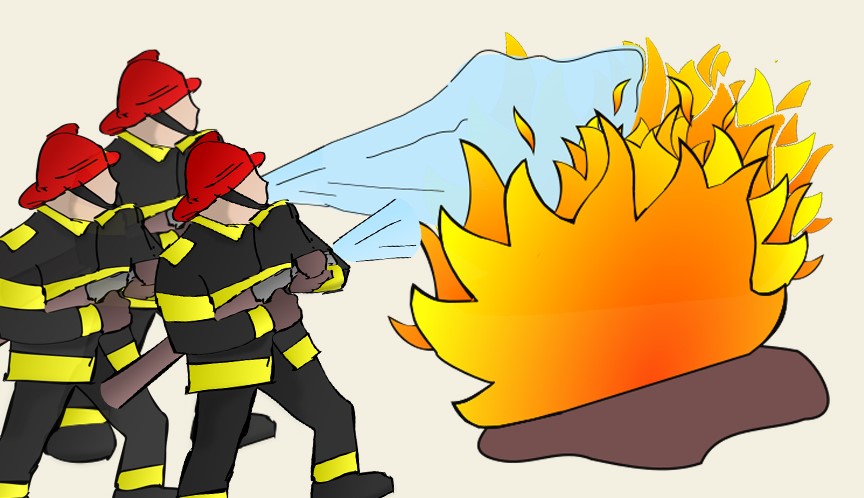OPINION: Individual changes will help stop wildfires
We need to take personal responsibility to prevent fires growing out of control
As we’ve seen so far, wildfires are a fact of nature. But we can help mitigate their damage by taking responsibility for our environment.
September 22, 2020
Forests on fire and smoke in the air — this is the best advertisement for the Green New Deal.
We see something wrong is going on in nature. We have to realize that this is a stopping point. Our dividing line is to see how ready we are to sacrifice some of our habits to let our children know and experience the natural world.
Most information about the smoke these days is connected to human health and how it will affect us. We do not ask questions about reasons for fires, which are directly caused by some of our behaviors and lifestyle choices.
Mark Swanson, associate professor in WSU’s School of the Environment, said there are complex factors behind the fires.
One is the colonization of northwestern America by the Europeans and the removal of Native Americans, Swanson said.
Native Americans used controlled fire to open up the landscape, creating hunting territories and more accessible roads. Their removal from the territory made changes in the forest and natural landscapes. The area was changed, regarding the amount of fuel, contributing to extreme fire behavior.
“Another factor is climate change. We know the growing seasons are longer, hotter and dryer,” Swanson said. “It means that fuel will be available to contribute to fire behavior, for higher fire spread and fire severity.”
We can see that fires during the warm season are not necessarily a problem. Uninformed land use, however, brought more fuel to the landscape, and the fires became longer and more severe. Climate change raising the average temperature also adds to the severity.
We can argue forever about our contribution to this problem, but the underlying logic is a powerful thing. If there’s fuel and it is ready for a fire, there will be fire. If nobody controls it, the fire will grow until it loses fuel.
I do not know what other proof the government needs to see for more comprehensive climate policies – we are literally on fire.
I don’t want to scare anybody or force readers to do something they don’t want, but we do need to think and see connections between different events.
“We should focus more on shared values,” said Sofia D’Ambrosio, environmental science doctoral candidate. “Making some changes in our personal lives will make sure that we will have that privilege and our future generations will have that privilege, to enjoy walking in the woods together.”
I think it is the perfect time to stop being selfish and care, if not about the biosphere and other species, then at least our children. It is about letting the next generation enjoy everything we can enjoy today.
A significant portion of fire prevention is also preparing and educating people about living in annual fire zones. People should know how to behave in the forest, not cause wildfires and make their homes safer. It is about taking responsibility for everything we are doing and how we live.
“We cannot prevent fires, and there is not a lot we can do about the situation. What people can do is become more adaptive to wildfire,” said environmental science doctoral candidate Mark Billings. “We should do a better job of convincing people that everybody has to prepare [themselves].”
We have many ways to think about the wildfires and smoke: we can see them as not our problem, or we can take responsibility like mature adults.
This responsibility has many vectors:
- Change patterns of behavior and be more friendly to nature.
- Be prepared to take responsibility if we live in areas with potential for wildfires.
- Follow the protocol of how our property should look to prevent fires.
We can also choose to not be responsible at all and wait until the smoke, absorbed by our lungs, will be enough to bring some changes into our brains.

















